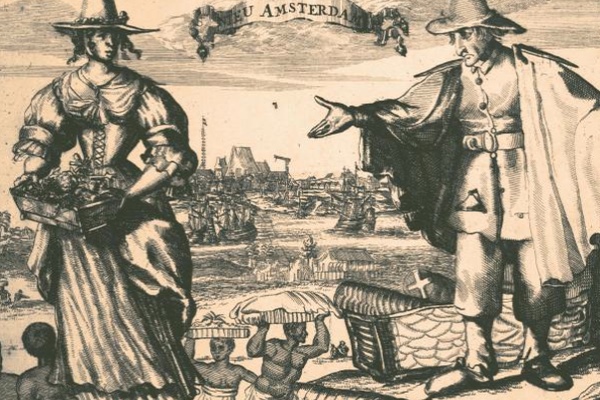Why I Stand by What I Wrote About the Dutch

Regarding Alan Singer's attack on my op-ed in the New York Times: Historians are supposed to argue with each other, and I am always happier to have someone take issue with a piece of my writing than to ignore it. That said, Singer's attack is such a nonstarter that it doesn't require a detailed response. His basic point is that in describing the Dutch colony of New Netherland as providing the elements of New York's future success – a mixed society based on the concept of tolerance of religious differences, and a unique approach to free trade – I ignored many intolerant aspects of Dutch history. The Dutch were major players in the slave trade, discriminated against Jews and Catholics, etc., etc.
I guess I am guilty of assuming too much on the part of some readers. After all, in an 800-word piece, one has to dovetail and come to the point. So here is the basic notion that I left out of that piece – so basic I thought it went without saying:
In the world of seventeenth century Europe, everyone was a bigot. Everyone was prejudiced. Every European (except the Jews themselves) was an anti-Semite, who believed the Jews were Christ-killers and not to be trusted. It was a commonly held assumption among ordinary English, French, Spanish – and, yes, Dutch – inhabitants of the world of four centuries ago that native peoples of other continents occupied a lower order of creation than did Europeans, and thus could be exploited like animals. As to religious differences, the seventeenth century was dominated by a network of wars stemming in large part from the Reformation. Lutherans and Calvinists detested Catholicism as a diseased and fatally corrupt ideology. Catholics considered Protestants so heinous that Fernando Alvarez de Toledo, the dreaded Duke of Alba, who brought the Spanish Inquisition into the Dutch provinces, had his men "cut the throats of everyone they found" as they went about the task of purifying the country of Calvinists. And many Protestant sects reserved their most rarified hatred for other Protestant sects.
That is what I assumed in my 800-word piece: that we all understand that religious and ethnic prejudice was an elemental aspect of the human value system in the seventeenth century, and that it included the Dutch.
And yet! Somehow, in the midst of this roiling cauldron of bias and bigotry and loathing and distrust, the Dutch provinces managed to craft a policy of official tolerance of religious differences. It was codified in the Union of Utrecht of 1579, the foundational document of the Dutch nation: "… each person shall remain free in his religion and that no one shall be investigated or persecuted because of his religion..." This policy was less the result of idealism than of practicality. But it was still a watershed. It was a step on the road to "all men are created equal."
Did the Dutch themselves always adhere to this policy? Of course not. Singer notes that Peter Stuyvesant tried to bar Jews from settling in New Netherland. Singer fails to note that Stuyvesant also tried to bar Quakers from settling in New Netherland. He hated both groups! But in both instances Stuyvesant was overruled. The colonists who penned the Flushing Remonstrance, considered by some to be the foundational American statement of religious freedom, pointed specifically at the "law of love, peace and liberty in the states" – meaning the states of the Dutch Republic, said that this law is "the glory of the outward state of Holland," and noted that this law extended "to Jews, Turks and Egyptians."
That law was limited, flawed, and often disregarded. But it was a lurch forward on humanity's march. It extended to New Netherland, and became part of New York's fabric.